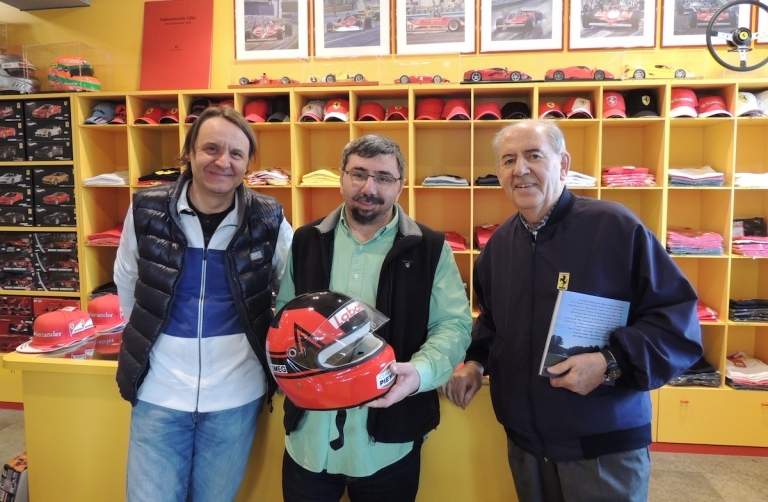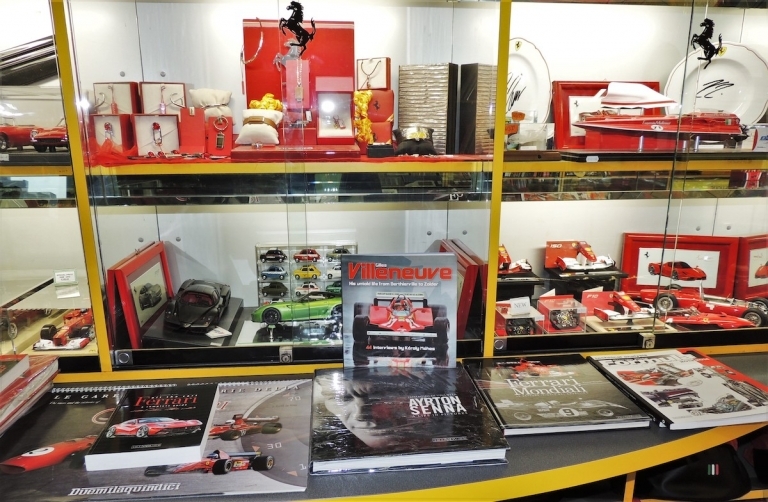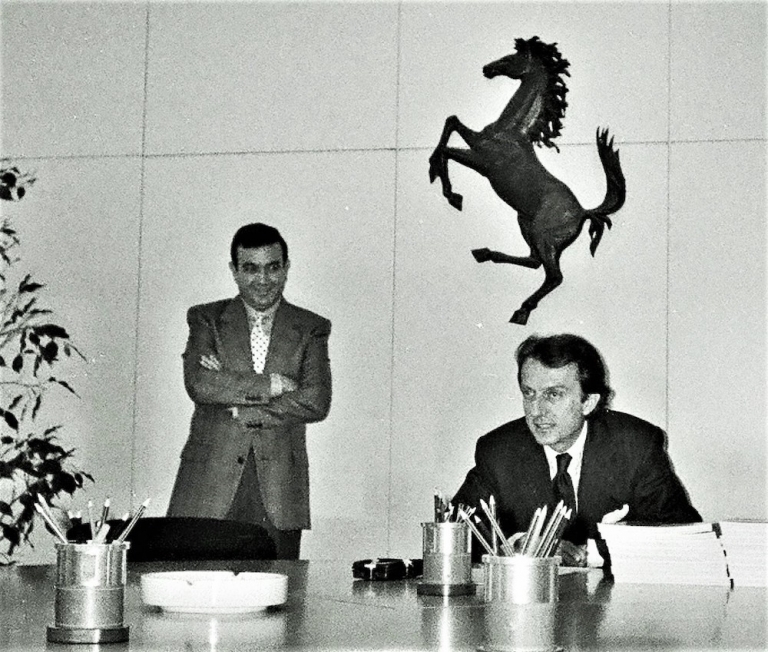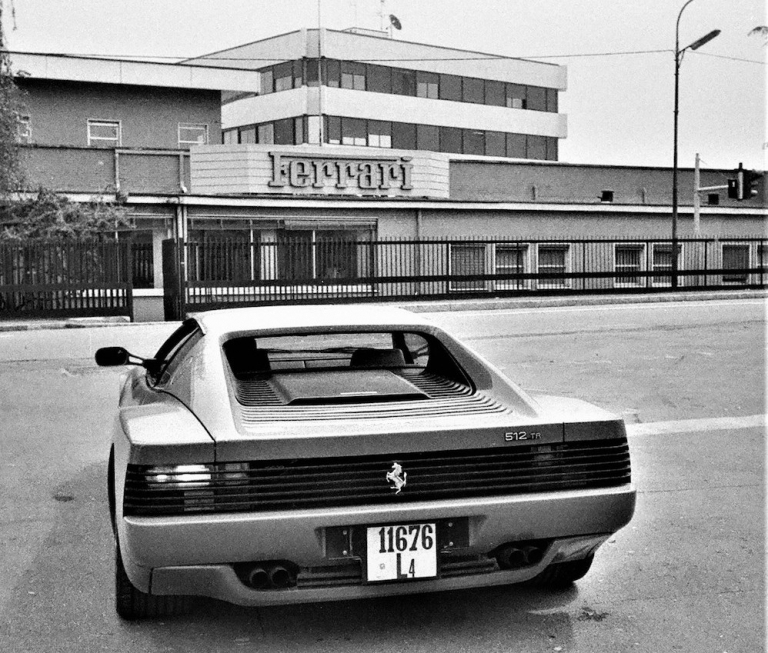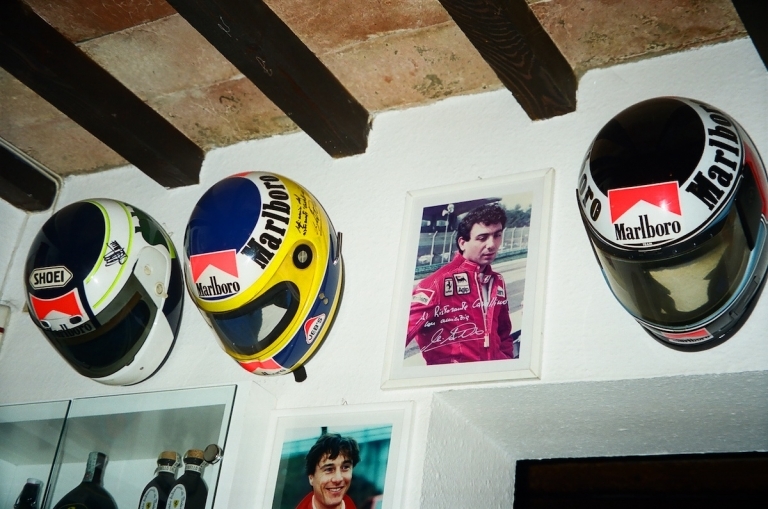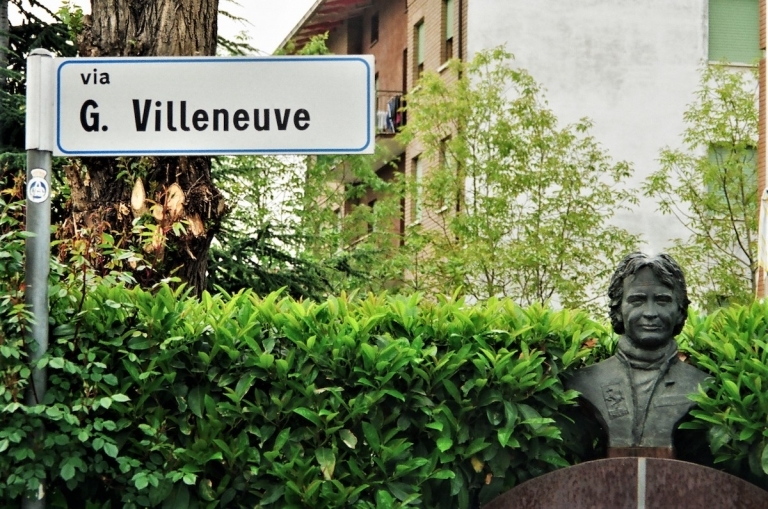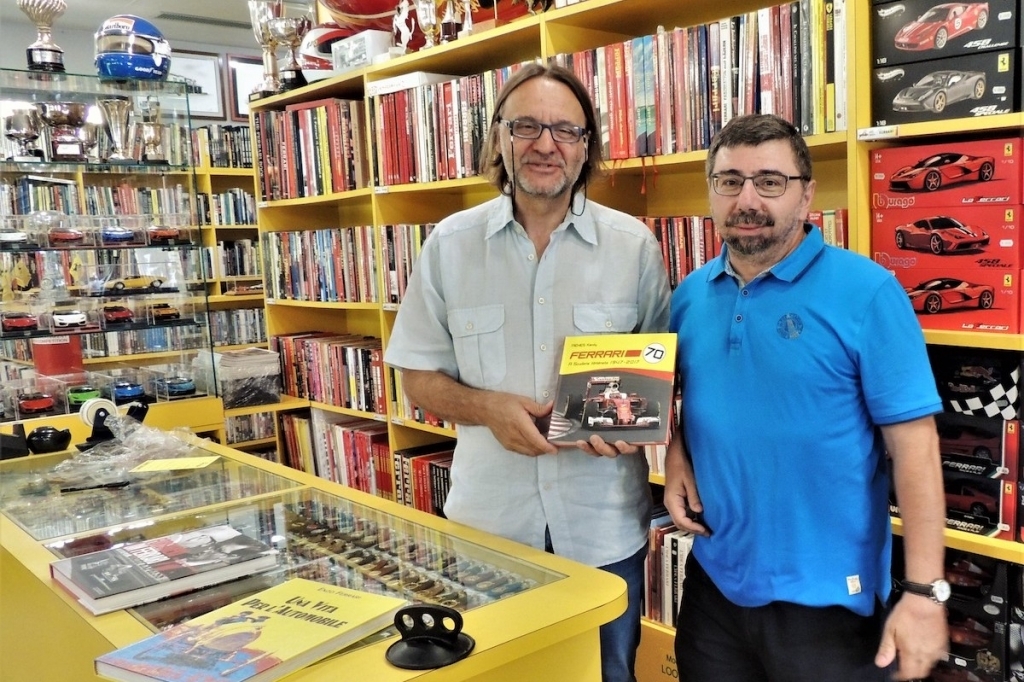
Károly Méhes chats to Luca Fornetti, owner of an F1-themed shop in Maranello, about life during lockdown at the home of Ferrari.
Images © Károly Méhes
There’s always a buzz about Ferrari in Maranello. Not now. Italy has been one of the hardest hit countries by the coronavirus, and the situation in Emilia-Romagna, the region where Maranello is located, is particularly grim. In response, the Ferrari museum in Maranello was closed and factory tours were suspended on February 24. Soon after, Ferrari halted production at its Maranello and Modena factories until March 27; the closure has now been extended until April 14.
My first visit to the home of Ferrari was in 1993. I’ve returned almost every year since, witnessing the growth of the “fan industry” around Ferrari that old company insiders say would not have impressed the founder, Enzo Ferrari. This week, I spoke to my old friend Luca Fornetti, the distributor of my book about Gilles Villeneuve and owner of the shop now known as Maranello COLLECTION, which sells F1 models, books and more. Established in 1979, the shop is located near the main gates of the Ferrari factory in Maranello.
What effect has the coronavirus had on your work, family and friends?
Covid19 stopped my motor racing work by about 95%. My shop is closed, and I only do a little work online. It has divided my family in four as we live in four different houses. I’ve been keeping in touch with friends by phone.
When did the seriousness of the situation really hit home for you?
We understood the gravity when they shut down theatres, stadium and all public events. My shop was already empty before we were also shut down soon after. The mayor of Maranello and many of my neighbours have been struck down with the virus; we could feel its presence. I am staying home and trying to treat it like a kind of holiday, which is not bad, but I’m feeling a bit useless to society.
How is life in Maranello at the moment?
It feels a bit like the time of austerity in 1973 during the petrol embargo. The roads are empty, the air quality is much better. There are few people around and lots of controls to stop people gathering in groups. Ferrari was still testing some road cars soon after closing the factory. It was strange to see mask-wearing drivers at the wheel of these luxury cars.
Are you optimistic about the future for yourself, your shop and the town?
If I want to stay open and keep up with my payments, I will need to ask for a loan from the bank. I think business in the shop will be weak for the whole of 2020; if there’s no racing in F1 and no interest in the sport, people won’t be buying models or books. I think Maranello will ride a rollercoaster of emotions, from depression to enthusiasm.
What do the tifosi say about Ferrari’s future?
The tifosi will never lose their passion for Ferrari. For the cars, the drivers, the people associated with such a legendary marque. Remember how they had to wait 21 years between drivers’ championships? [From Scheckter in 1979 to Schumacher in 2000]. They will be there for the team. Not sure what the tifosi will think if the company makes an electric car or SUV, but I’m sure Ferrari will come up with something unique. It’s more difficult when it comes to the buyers of Ferrari; orders are being cancelled and the company could face a difficult few years.
Does your shop have an online presence?
I have a shop on eBay which has visibility and does quite well, but it costs a bit too much. I’m working on a new website of my own in order to offer more competitive prices and keep a bit more profit for myself.
